A Little Life — Book Review
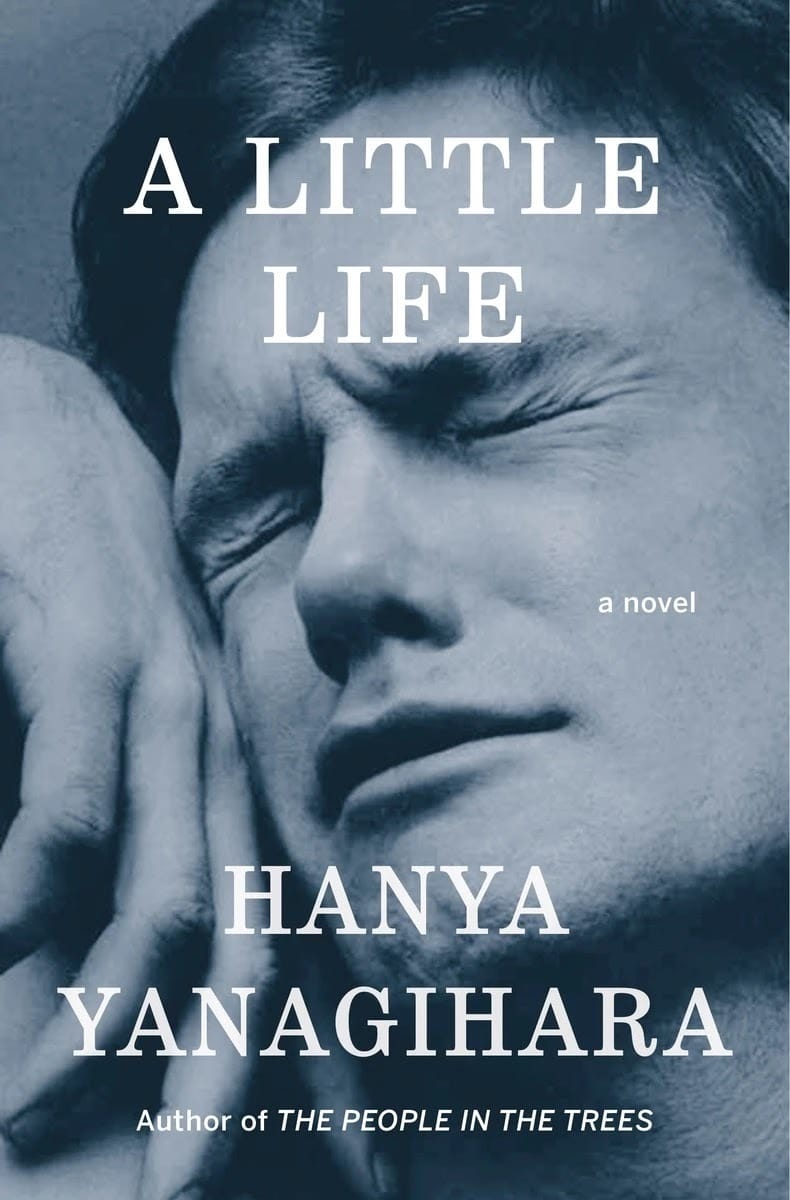
TL;DR
4.5/5. This book is about four friends living in New York—at least for the first 200 pages—bouncing between their perspectives to where you learn enough to care about them. Then, the book shifts, centering Jude, an incredibly smart and traumatized individual, and everything goes to shit.
A Little Life is a book about insecurity, trauma, and depression, but also friendship, family, and love. It’s the most candid account of the human condition that I’ve read, perhaps marred a bit by an overly pessimistic main character (which is duly justified once you read what Jude’s been through). That’s this book’s genius: its ability to translate the most unscrupulous thoughts—some of which I’ve had, but would never write—onto a page. I’ve never thought about a book this much after reading.
So why not 5 stars? I don’t like Yanagihara’s writing style. Her sentences are too long for my taste, and I often had to reread a sentence to understand what she was saying. I didn’t have to reread because A Little Life was difficult to comprehend, like philosophy, but because her style is too disjointed.
Also, an 800-page book should justify its length. I don’t think A Little Life did. There were moments interspersed throughout the book that bored me and some parts toward the end became repetitive.
Favorite Quotes
- When did pursuing your ambitions cross the line from brave into foolhardy? How did you know when to stop?
- If I were a different kind of person, I might say that this whole incident is a metaphor for life in general: things get broken, and sometimes they get repaired, and in most cases, you realize that no matter what gets damaged, life rearranges itself to compensate for your loss, sometimes wonderfully.
- Life would keep propelling him steadily forward, because for everyone who might fail him in some way, there was at least one person who never would.
- Children are a kind of cartography, and all one has to do is obey the map they present to you on the day they are born.
- He knows, he does, that this past year and a half was his warning—a long, slow, consistent, unignorable warning—but he has chosen, in his arrogance and stupid hope, not to see it for what it is. He has chosen to believe that because he had always recovered, that he would once again, one more time. He has given himself the privilege of assuming that his chances are limitless.
Book Ramblings
Spoilers!
Some of these thoughts might be wrong because it took me two months to read the book and I forget things very easily. Also, this section doesn’t cover the book’s events in chronological order.
“Relentlessly Depressing”
Many Goodreads reviews said that A Little Life was “relentlessly depressing” or some variation of that. For some, this was part of the intrigue of the book. For those like Ashley, this ruined the book; Ashley gave A Little Life one star because the book came “down to the fact that pain was the only point” and they thought that was “reprehensible.”
But the book wasn’t relentlessly depressing to me. There were moments where love really shined, where perseverance did lead to a better tomorrow, no matter how temporary. For example, the moment when Harold and Julia sit down to talk to Jude about “something,” and Jude perceives this as a breakup. Jude's insecurity takes over, thinking Harold and Julia don’t want anything to do with him anymore. Then, Harold asks to adopt Jude, and he replies, “Harold, Julia—are you kidding? There’s nothing—nothing—I’ve ever wanted more. My whole life.”
Or, you have Andy helping Jude throughout the entire book. Or Andy, Harold, Willem, JB, and Malcolm all intervening when Jude’s cutting becomes too severe. Or everyone coming together to ensure Jude’s safety toward the end of the book: “They have been watching him for weeks—Sanjay has been keeping track of the days he’s seen him eat at the office, Richard has been entering his apartment to check his refrigerator for food.” They all coordinated together with Andy.
And the epitome of what I consider as optimism: After Willem’s death, Jude wants to give up. And one day, at dinner with Harold and Julia:
“This is disgusting,” he says that night, pushing away the chicken stew Harold has made. “I won’t eat this.” “I’ll get you something else,” Julia says quickly, getting up. “What do you want, Jude? Do you want a sandwich? Some eggs?”
The scene climaxes after Jude displays more petulant behavior and throws the plate of food Julia made against the wall. Jude has given up. He wants Harold to hit him and Harold raises his hand and—hugs Jude.
“Jude,” Harold says to him, quietly. “My poor Jude. My poor sweetheart.” And with that, he starts to cry, for no one has ever called him sweetheart, not since Brother Luke. Sometimes Willem would try—sweetheart, Willem would try to call him, honey—and he would make him stop; the endearment was filthy to him, a word of debasement and depravity. “My sweetheart,” Harold says again, and he wants him to stop; he wants him to never stop. “My baby.” And he cries and cries, cries for everything he has been, for everything he might have been, for every old hurt, for every old happiness, cries for the shame and joy of finally getting to be a child, with all of a child’s whims and wants and insecurities, for the privilege of behaving badly and being forgiven, for the luxury of tendernesses, of fondnesses, of being served a meal and being made to eat it, for the ability, at last, at last, of believing a parent’s reassurances, of believing that to someone he is special despite all his mistakes and hatefulness, because of all his mistakes and hatefulness.
Jude accepts Harold’s unconditional love for the first time. How is this relentlessly depressing? If anything, I think it’s beautiful and hopeful. Harold and Julia love Jude so much. In this moment, Jude realizes that he is wrong—that he wasn’t born bad.
As for Ashely’s statement on how the book is reprehensible because its message is that life will forever suck, I say: so what? (Assuming Ashley is right, which I don’t believe as stated above.) At some point, you have to recognize that you have had the privilege of having your hope reaffirmed. That’s why you continue to live. But this doesn’t happen for everyone. Sometimes, the world is just shit, over and over and over.
Yet, Jude tried. He tried so hard to live, not for himself, but for others. Although that’s not the best motivation, Jude still persisted. So how is this book reprehensible? Because, yes, there is extreme suffering, but there is also so much love in this book. Love that Jude was willing to live for.
Brutal Honesty
Before we really learn about Jude’s past, there’s this part where Willem realizes that Jude is self-harming. The narrator goes through Willem’s thoughts, Willem trying to relieve himself of responsibility because he didn’t really know Jude was cutting himself. But he later confronts himself: “He had been lying when he told Andy he hadn’t known Jude cut himself. Or rather, he hadn’t known for certain, but that was only a technicality: he knew, and he had known for a long time… Much of his friendship with Jude, it often seemed, was not letting himself ask the questions he knew he ought to, because he was afraid of the answers.”
I really like this aspect of Yanagihara’s writing. It’s just so honest. It shows that we’re lazy sometimes. We make mistakes. And you can’t just brush past it and say “we’re all human.” Sometimes, we have to own up to our ineptitude because our lives are all entangled. We’re mutually responsible for each other’s well-being.
“He is so angry—at himself, at Jude—that for the first time since he has known him, he wants to hit him, he can see his fist smashing into Jude’s nose, into his cheek. He wants to see his face shattered, and he wants to be the one to do it.” This is about Willem. Not that it’s good to want to hit people, but I’ve definitely been frustrated to the point where I’ve wanted to punch someone. I’m not analyzing this quote with as deep of a meaning as above. It’s relatable. And reading stuff that you’ve also felt is nice. (But I also thought it was very weird that Willem wanted to punch Jude since… Jude is his partner? I feel like that’s surely a red flag.)
Willem died. Then, “[Jude] sued the truck driver, the company the driver worked for. The driver, he heard through the driver’s lawyer, had a chronically ill child; a lawsuit would ruin the family. But he didn’t care. Once he would have; not now. He felt raw and merciless. Let him be destroyed, he thought. Let him be ruined. Let him feel what I feel. Let him lose everything, the only things, that matter.” Okay, Jude is a dick here. But it’s understandable because, for the first time, Jude’s life was starting to trend toward happiness. The honesty here really helps convey Jude’s emotions.
Understanding Abuse
Everything that Jude goes through seems so unimaginable to me, but I realize it does happen to people. I remember grimacing as I read the chapters of Jude’s relationship with Caleb: Caleb calling Jude “deformed,” hitting Jude, throwing Jude naked out onto the streets in the pouring rain. It’s just unbelievably shitty. Also serves as a reminder to be considerate of people’s needs because you never know what they’ve been through.
I haven’t read many books that touch on abuse, but this one definitely helps me understand what other people have gone through.
Yanagihara’s Omniscience
Yanagihara also seemed to be an expert in everything? There’s a part about one of Jude’s math professors dying and Jude explains his math professor’s favorite axiom in his eulogy. It was just so… on point that I thought Yanagihara studied math or something. And in law, architecture, art, acting, everything that Jude, Willem, JB, and Malcolm did—her writing was very compelling, especially for someone who doesn’t know much about those domains.
Allusions and Other Commentary
Some smaller things I noticed in the book:
- “He would wish he were back in Wyoming, waiting at the end of the road for Hemming, where the only path he had to navigate was the one back to his parents’ house, where the porch light washed the night with honey.” Possibly an allusion to the porch light from The Great Gatsby?
- “’But they’re your parents,’ Malcolm said to him once a year or so. ‘You can’t just stop talking to them.’ But you could, you did: he was proof of that. It was like any relationship, he felt—it took constant pruning, and dedication, and vigilance, and if neither party wanted to make the effort, why wouldn’t it wither?” Reminded me of “Matilda” by Harry Styles. Both touch on this idea that it’s okay to leave your family if they’re hurting you.
- “Wherever she went, wherever I went, there it would be, that shining twined string that stretched and pulled but never broke, our every movement reminding us of what we would never have again.” Reminded me of “invisible string” by Taylor Swift.
- “Or was it the day that they were passing through Utah to Idaho.” Idaho made it into a popular book! Yay! Although for bad reasons…
- “’Better check your recent case law, counselor,’ Andy hisses back at him. ‘Rodriguez versus Mehta. Two years ago. If a patient who’s been involuntarily committed attempts serious self-injury again, the patient’s doctor has the right—no, the obligation—to inform the patient’s partner or next of kin, whether that patient has fucking given consent or not.’” This felt like a very badass Andy moment. Go Andy!
- “He starts to give a toast, thanking everyone for everything they have given him and done for him, but before he gets to the person he wants to thank most—Willem, sitting to his right—he finds he cannot continue, and he looks up from his paper at his friends and sees that they are all going to cry, and so he stops.” This was just cute.
- “He is thinking this, crossing his arms over himself, when JB suddenly grabs him by his shoulders and kisses him on the mouth.” What the hell was this??? I know JB’s weird, but… really? This felt out of character. I think I physically recoiled when I read this part.
- “There is Willem, imprisoned forever in a one-sided conversation. Here he is, in life, imprisoned as well.” Reminded me of The Invention of Morel by Adolfo Bioy Casares, where the main character also becomes imprisoned forever in a one-sided conversation.
- “In the dreams he is always there, dispassionate and watchful, and after witnessing their destruction, he turns and walks away.” Reminded me of the movie Dream Scenario by A24. The main character in that book appears in people’s nightmares, dispassionately watching them suffer.
- “I sat down one Saturday to clean out the bookcases, an ambitious project that I soon lost interest in, when I found, tucked between two books, two envelopes, our names in his handwriting.” I completely forgot about this, but Harold finding this after Jude’s suicide just hit so hard. It made me happy.
What I’m Reading Next
Normal People by Sally Rooney. I wanted to read nonfiction next, but one of my friends is rereading this, and reading is always more fun when you have someone to read along with!
No spam, no sharing to third party. Only you and me.
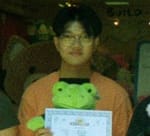
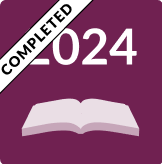
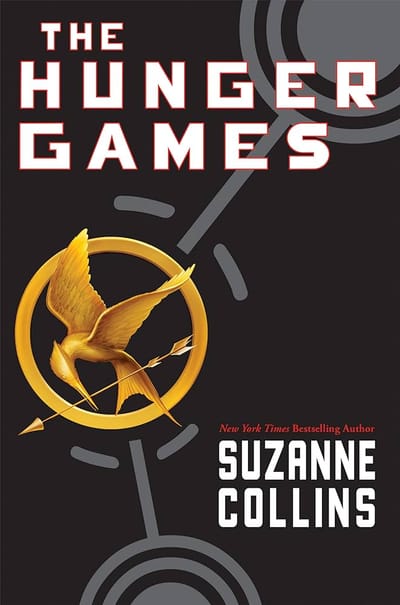
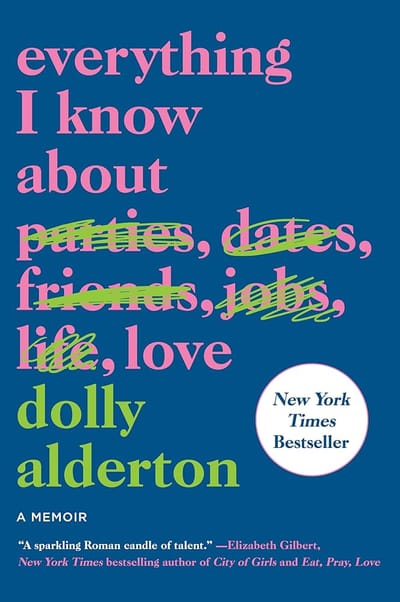
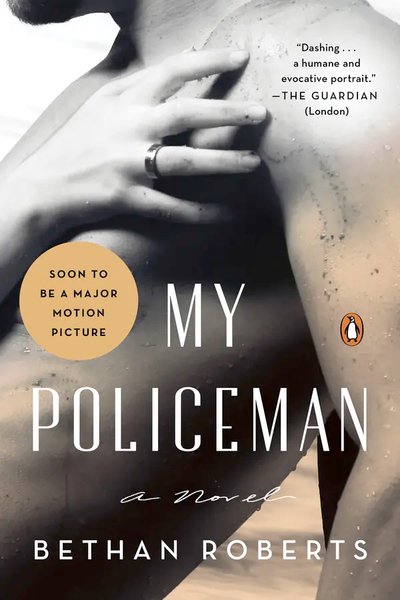
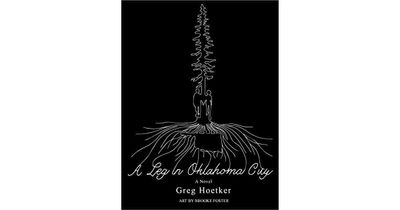
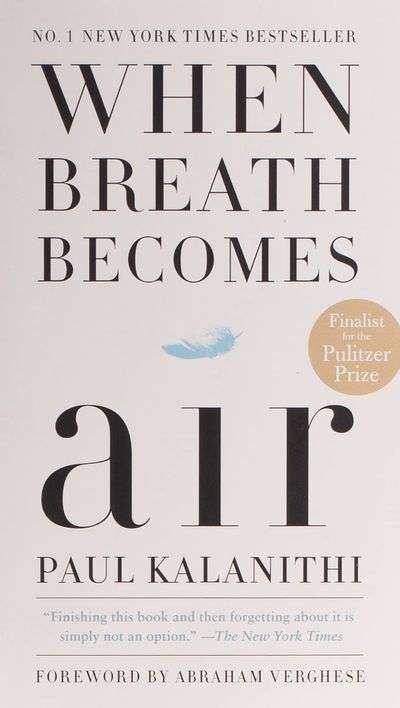
Member discussion